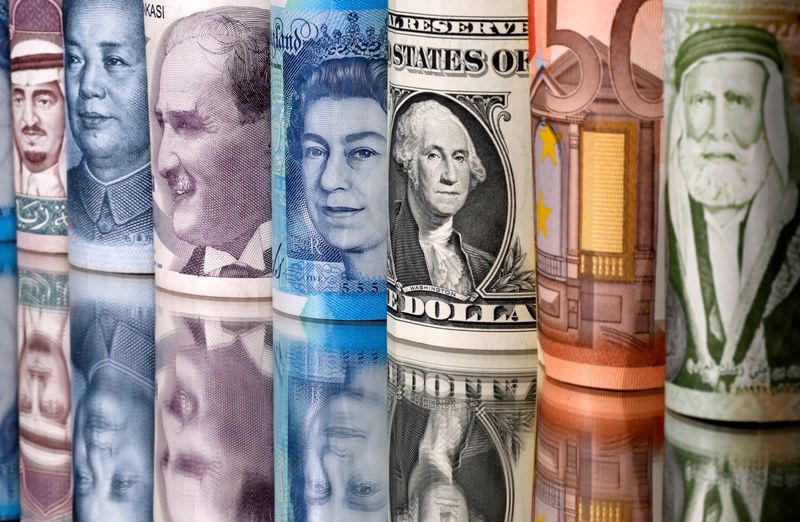By Marc Jones
LONDON (Reuters) - Emerging markets investors are seeing a volatile start to the year, with a mix of good, some bad, but also some plain ugly developments to navigate.
THE GOOD
Lumped together in MSCI's 25-country EM equity index, emerging market stocks are outperforming developed market ones by a comfortable 3 percentage points so far this year.
Versus the tech-heavy U.S. Nasdaq 100 it has been by an even greater 7 percentage points, although in actual terms the MSCIEF is still marginally below where it started the year.
(Graphic: Emerging market stocks outperform developed market stocks: https://fingfx.thomsonreuters.com/gfx/mkt/mypmnjkwrvr/Pasted%20image%201643794489062.png)
One of the main drivers has been that Chinese stocks appear to have regained their footing after some record falls last year.
Currencies like Brazil's real, Colombia's peso and in eastern Europe, the Czech crown and Hungarian forint have all shot up as their central banks hike interest rates. Ethiopia's bonds have surged as its civil war has eased, and even Argentina's debt has rallied in recent days after its government took a big step towards a deal with the International Monetary Fund (IMF).
"The new year is always an interesting time," said Kiran Nandra, Head of Emerging Equities Management at Pictet Asset Management. "We often look at where do we have maximum fear, because that can provide the best opportunities."
(Graphic: Chinese stocks make tentative recovery: https://fingfx.thomsonreuters.com/gfx/mkt/zdvxoanempx/Pasted%20image%201643806581616.png)
THE BAD
A combination of rising global borrowing costs and concerns around Russia and Ukraine have seen the slowest start to a year for emerging market government debt issuance since 2016.
(Graphic: Slowest January for emerging market sovereign debt issuance since 2016: https://graphics.reuters.com/EMERGING-MARKETS/gkvlgjxrmpb/chart_eikon.jpg)
Figures compiled by J.P. Morgan this week showed that $17.9 billion of emerging market sovereign bonds were sold in January, more than 40% down on the record $32.2 billion raised last year when many governments looking to fill COVID spending gaps were getting all-time-low borrowing rates. [.JPMEGDR]
Those who invest in U.S. bank's widely-tracked EMBI global diversified EM hard currency debt index are down 2.75% for the year although much that is to do with the fact the big developed market debt like U.S. Treasuries have lost ground too.
(Graphic: EM sovereign bond yields: https://fingfx.thomsonreuters.com/gfx/mkt/zjvqkawwlvx/Pasted%20image%201643738218207.png)
THE UGLY
This year's worst performances have come from Ukraine and Russia due to worries, repeatedly denied by Moscow, that Russia could invade its Western-backed neighbour like it did back in 2014.
Both countries' currencies are among the three worst performing in the world this year. No Russian company has be able come to the international bond markets so far this year. Last year, roughly 45 did so throughout the year, according to analysts at Seaport Global, issuing a combined $15 billion worth of debt.
(Graphic: Russia and Ukraine strains: https://fingfx.thomsonreuters.com/gfx/mkt/xmpjojrxxvr/Pasted%20image%201643794045907.png)
Russian stocks have slumped nearly 8%. Ukraine's government bonds are down 17% from their most recent peak, although when COVID first hit, they dropped 30% and they slumped 56.5% between July 2014 and March 15 when Russia annexed Crimea in 2014.

"If Russia does start a war that would cause a big risk-off event. But we see that as low probability," said Aegon (NYSE:AEG) Asset Management's head of Emerging Markets Debt Jeff Grills.
(Graphic: Emerging market equities indexes in 2022: https://fingfx.thomsonreuters.com/gfx/mkt/gdvzyndoxpw/Pasted%20image%201643812977534.png)